Anthony Bourdain: Parts Unknown
Season 12
s12e01 / Kenya
24th Sep '18 - 1:00am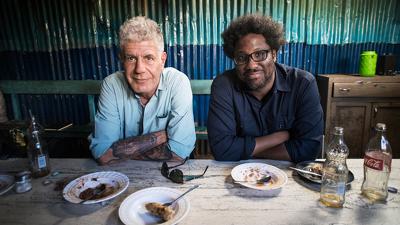
Bourdain introduces his fellow CNN Original Series host W. Kamau Bell (United Shades of America) to the distinctive sights, tastes, and sounds of Kenya. It is Bell's first trip to the African continent, and to a country that holds a personal connection for him. In Nairobi, they talk to locals about the country's growth and economic challenges, as well as the continual fight for identity and self-definition of Kenyans. Bourdain and Bell also take a Matatu party bus ride, share a meal of goat's head soup and visit a boxing academy devoted to teaching young women, and promoting female empowerment. Leaving Nairobi the pair travel to Lewa Wildlife Conservancy and visit with a Maasai community actively engaged in conservation. Through the eyes of Bourdain and Bell, and their first experiences with this highly dynamic deeply, soulful and beautiful country we ask, what will a future Kenya... for Kenyans... . by Kenyans... look like?
s12e02 / Asturias, Spain
1st Oct '18 - 1:00am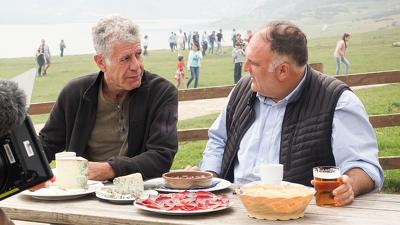
Bourdain travels to the enchanted region of Asturias, Spain with chef and humanitarian Jose Andres, as he makes a return to his homeland. The people of Asturias embody the rugged environment of the region with a hard working 'do it yourself' spirit. Bourdain and Andres hike to a remote village in the mountains for traditional fabada, ocean cliffs for gooseneck barnacles, and secret cheese caves in undisclosed locations. Bourdain also enjoys pitu de caleya with local musician Pablo Und Destruktion while he's served on the last worker's class movement. And in true Jose Andres form, he saves a special surprise for the end.
s12e03 / Indonesia
8th Oct '18 - 1:00am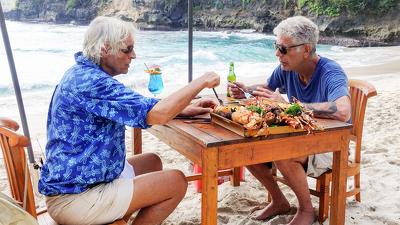
A shadow puppet performance provides an entry into understanding Indonesia, a country comprised of thousands of islands whose people endured political turmoil, and one in which, Bourdain discovers, food is the great unifier. In this fourth largest country in the world, every area has it's own unique traditions. In Jakarta, Bourdain eats at a Padang Restaurant where nearly every menu item comes to the table; while in Bali he visits the beach, commenting on yoga before joining in a traditional Balinese Funeral ceremony.
s12e04 / Bourdain's Impact
15th Oct '18 - 1:00am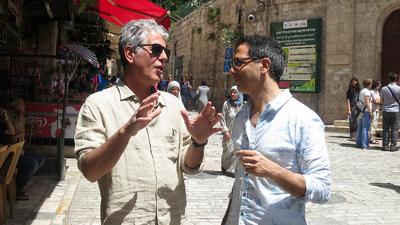
This episode explores how Anthony Bourdain's unique perspective and voice altered the world of food, travel and culture and in the process reinvented how audiences watched television and engaged intimately and actively with the world around them.
s12e05 / Far West Texas
22nd Oct '18 - 1:00am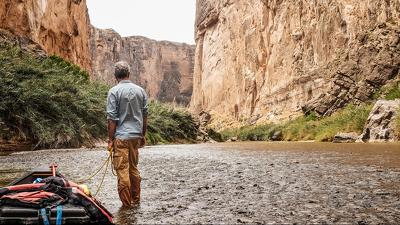
Bourdain travels to the untamed land of Big Bend, Texas near the Mexican border; an area that pits man against nature and in which the land usually wins. Bourdain shares meals with working cowboys who have made peace with the rough terrain, and meets with an anthropologist who decoded prehistoric landmark, the White Shaman wall painting.
s12e06 / Behind the Scenes
29th Oct '18 - 1:00am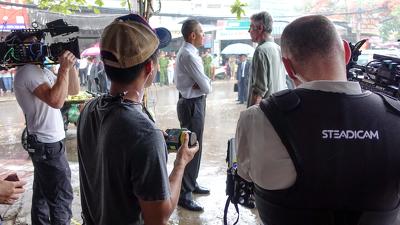
Bourdain's relationship with his crew, the team that traveled with him and slogged through the trenches, was like no other in his life. In this episode the people who made Parts Unknown select moments from their episodes and pull back the curtain, to talk about collaboration, creative freedom, moments when Bourdain had their back or called them out, the times when he was caught off guard or forgot the cameras were even there.
s12e07 / Lower East Side
12th Nov '18 - 2:00am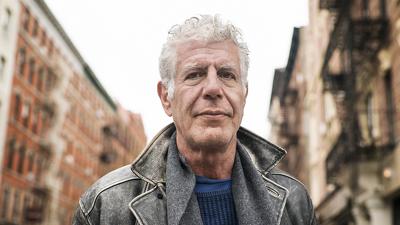
Bourdain takes a personal journey through this formerly bohemian New York City neighborhood, as he meets, shares meals and reflects with music, film and art trailblazers including Richard Hell, Deborah Harry and Chris Stein, Lydia Lunch, Fab 5 Freddy, Danny Fields, Amos Poe, Jim Jarmusch, Kembra Pfahler, John Lurie, Clayton Patterson and Harley Flanagan, whose collective cultural impact in the 1970's and '80's has sustained through the decades.